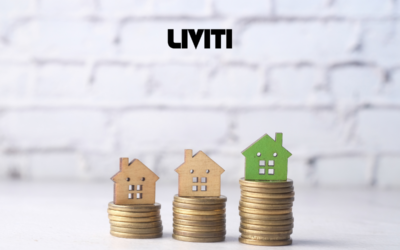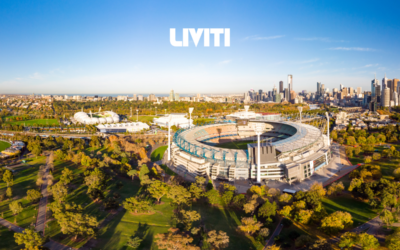So you have found yourself the home of your dream. All you need to do now is hand over the deposit, and it’s yours, right?
Well, it is not that easy. Before you can call that place your new home, you will need to step through the conveyancing process, which includes all financial, administrative and legal documents to transfer that home to your name.
This conveyancing process can be stressful, so let us guide you through it.
What is Conveyancing?
Put simply, conveyancing involves the legal processes or administrative processes in relation to transferring the ownership of a home from an old owner to a new one. This is a multistep process that a licensed conveyancer or solicitor usually facilitates. You can also do your own conveyancing.
A general conveyancing transaction generally consists of 3 stages:
- pre-contract
- pre-completion
- post-completion
However, not as easy as it may sound, a conveyancing process might include a lot of paperwork and other nitty-gritty issues as it includes preparing, executing and lodging legal documents as required by the legislation in your state or territory.
What Does a Conveyancer Do?
Not counting the price of the property itself, there will be multiple upfront costs involved in the process of buying a home, such as stamp duty, conveyancing costs, mortgage establishment fees, etc. With such a long list, it’s tempting to cut costs by trying to do things yourself.
However, you might want to hire a professional for a task that is quite complicated or protracted as conveyancing. Sometimes, the risk of getting it wrong might far outweigh the money you’ll save.
So, what is a conveyancer?
A conveyancer is a professional with a conveyancing licence, who specialises in providing advice and information about the sale of a property. They will assist you in handling all legal aspects of a property transaction and ensuring you are prepared for critical dates throughout the process.
Conveyancers are not required to be solicitors, but they generally do this work.
What does a conveyancer do?
- Prepare the Contract of Sale – The conveyancer will draft, review and advise on the contract’s terms and conditions and all necessary clauses that need to be included.
- Advice on your obligations under state and federal law
- Exchange the contract of sale
- Research the property and its certificate of title
- Organise your finance and arrange payment of the deposit, stamp duty, etc. on your behalf
- Arranges for building and pest inspections
- Liaise with government and local councils
- Settle the property and represent your interests with the other party.
That is only a portion of what conveyancers do!
Although it may appear simple on the surface, there can be a significant amount of detail, documentation, and work involved in legally transferring a property to a new owner.
What is Conveyancing Process?
While each state and territory has its procedures, they all follow the same general procedures. If you still want to fill out all of the forms yourself, here are all the necessary steps in a conveyance.
Step 1: Offer is made and accepted
You, as a purchaser, make an offer for a property listed for sale. This offer can include all of your requirements, such as specific settlement date, cooling-off period or “subject to finance.” The vendor then accepted your offer. This is the start of the conveyancing process.
Tips: You must act quickly at this stage to secure the property because the vendor may still be able to put the property back on the market until the contracts are exchanged.
Step 2: Contract of sale is prepared
This occurs between the vendor and the purchaser and sets out the rights and obligations of both parties. The vendor’s property solicitor will prepare this contract, and you will need to review it carefully with all terms and conditions.
Step 3: Contracts is exchanged
At the exchange step, the following takes place:
- The seller and the buyer both sign and date their contract copy.
- The purchaser pays the required deposit (usually 0.25% of the property sale price)
Once all parties’ sale contracts have been signed and exchanged, the buyer and seller each have an exact contract signed by the other party.
Step 4: Cooling-off period
After the contracts are exchanged, you still have the right to withdraw from the contract within a certain period of time. This is called a “cooling-off period”. Normally, this period will be from 2 to 5 days, but you can negotiate it with the vendor when you make an offer.
At this stage, you should again review the contract of sales and arrange for pest, building and/or strata reports.
The cooling-off period can vary between states and territories and doesn’t apply for property bought at auction. If you decide to cancel the contract during the cooling-off period, you may still lose your deposit.
Step 5: Transferring of title
On the expired day of the cooling-off period, you are required to pay the balance of your agreed deposit (usually 10% of the purchase price or 5% under the First Home Loan Deposit Scheme). When the deposit is paid, the contract becomes unconditional.
The transfer of land/property document is then prepared by the purchaser’s solicitor/conveyancer and signed by the purchaser.
Step 6: Pre-settlement
Before settlement, there are some actions that you need to take:
- Executes loan documents
- Execute stamp duty documents
- Orders council, water, and strata rate certificates (if applicable) and prepares adjustments to determine the total amount owed to the vendor at settlement.
Just before settlement, you should also conduct a final inspection of the property. In this final inspection, you should check
- The kitchen appliances, hot water system, air-conditioning are all operational.
- The house’s structure like walls, light, window and floor coverings are in the same condition
- Locks, keys and garage swipe cards/controls are supplied and working.
Step 7: Settlement Day
Contracts are typically settled 42 days after they are exchanged. However, different time periods can be negotiated through the parties’ property lawyers.
On the settlement day, you will need to organise all the money required to complete the sale (to cover stamp duty, lenders mortgage insurance and other fees and charges).
If you don’t have a solicitor or conveyancer to act as your agent in the settlement process, there might be quite a few extra tasks you will need to do on this day.
Step 8: Post – Settlement
Following the settlement, your lender will begin drawing down on your loan. This means that the amount they paid at settlement will be deducted from your loan account.
You are then obligated to pay land transfer duty or stamp duty. It is usually paid on the date of settlement. The property title will not be transferred to your name until you have paid this duty.
The seller is responsible for rates and other council fees up to and including the day of settlement, but you must pay these costs after that.
Congratulations! You can start moving into your new home.
The conveyancing process typically takes 8 to 12 weeks, but this can vary. Your case could take much longer than 8-12 weeks, depending on the circumstances. Conveyancing can be time-consuming for a variety of reasons. To avoid further delays, each step of the process must be completed correctly.
Understanding conveyancing and legal costs when buying property
Many property buyers plan to undertake legal issues themselves and seek legal help. The conveyancing procedure is often highly complex. A qualified conveyancing lawyer can help navigate the possible legal issues that can come with purchasing a new home.
What Is Included In The Conveyancing Fee?
As stated above, there are a number of legal and financial documents involved in the conveyancing process. These activities can be grouped into three areas:
- Research – gathering information about the property, including legal ownership and titles, the property’s condition, as well as its history and finances.
- Preparing documentation – drafting of a sales contract, preparing any legal or governmental documentation and delivering deposits or transferring title ownership.
- Examining and verifying all terms of contracts.
How Much Does Conveyancing Cost?
The conveyancing costs for a property are determined by its specific condition and circumstances. An expert conveyancer can provide you with an accurate assessment of the processes involved for the specific property you want to buy or sell, assisting you to ensure a smooth sale or purchase.
Depending on who you choose and the tasks involved, conveyancers might charge an hourly or flat rate for their service. This cost might also vary based on the states and territories you are in.
The cost of hiring a conveyancer in Sydney or New South Wales can range between $700-2,500.
The conveyancing fee in Melbourne and surrounding Victoria ranges from $600 to $1400, depending on the value of the property and the type of property.
In Queensland, the Conveyancing fees typically range from $500 to $1300.
What Are Disbursement Costs?
You will also be required to pay for disbursements in addition to the standard conveyancing fee. These are fees that the conveyancer has paid on your behalf that you must reimburse. Typical disbursements include:
- Certificate of the Title search: $20 – $100
- Local Council/Water/Land Tax Certificate: $300 – $450
- Mortgage registration: $121 – $197 (depends on states)
- Registering the property transfer
- Inspection fees (these can include general building or pest inspections)
Disbursement charges are typically higher than standard conveyancing costs because they fall outside of the conveyancer’s scope of practice.
Frequently Asked Question
Should I use a conveyancer?
By law, you are not required to use the service of a conveyancer, and you can choose to do it yourself to save money. However, real estate laws and property ownership are highly complex topics, and there are risks that you will lose your deposit or your dream home if you make mistakes during the process.
So the answer is yes! We highly recommend you hire a conveyancer for a smooth home buying journey.
What is the difference between conveyancers and solicitors?
Although both solicitors and conveyancers with recognised qualifications are qualified to convey the property, conveyancers are not solicitors.
Solicitors can provide legal advice during the home-buying process, whereas conveyancers cannot. This could be useful if complications arise and you need to seek legal advice.
However, keep in mind that solicitors’ fees are typically higher than those of a conveyancer.
How will the conveyancer charge me?
Conveyancing quotes are estimated and generally charged hourly. However, if the work is extended, you might be charged more than you originally quoted.
Because a flat rate does not change, comparing quotes between various conveyancing companies is much easier.
Will I be charged more for the extra work if my situation gets complicated?
Sometimes, if your case is complicated, the conveyancer might need to bring in a lawyer to help you resolve the problem. As a result, you will have to pay an extra fee on top of your conveyancer’s.
Conclusion
It is no doubt that conveyancing is a complex process, and conveyancers play an extremely important role in purchasing and selling a home.
With these facts, you can see why calculating conveyancing fees are pretty complicated, and now you know what to look for when comparing quotes. At Liviti, we have a team of conveyancers and qualified lawyers, so you’re looked after no matter the complexity and surprise issues.
For more information, give us a call at 02 9099 3412 to get started today.










